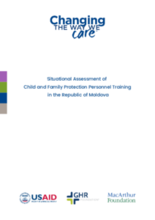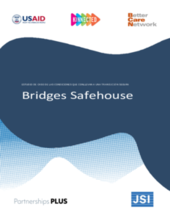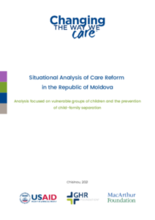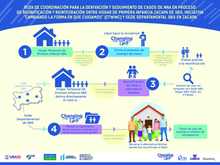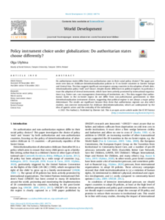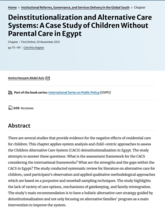Displaying 141 - 150 of 991
The purpose of the evaluation is to strengthen the training program for child and family protection personnel in coordination with recent programmatic, legislative, and methodological developments at national and international levels, and to effectively contribute to improving the quality of services for vulnerable children and families by improving the competencies of professionals in the system.
La Aldea Infantil Lighthouse se estableció en 2004 como una institución de atención residencial de gestión privada y financiada con fondos privados. En 2014, su donante principal desde hace mucho tiempo tomó la decisión de eliminar gradualmente la atención institucional de apoyo financiero. Este estudio de caso destaca algunas de las señales de advertencia tempranas y el posterior descubrimiento de comportamientos no éticos y delictivos que a veces se pueden observar en un proceso de transición.
Esta herramienta tiene como objetivo ayudar a los profesionales a lograr los siguientes objetivos al brindar apoyo técnico a las instituciones en transición:
Este estudio de caso destaca algunos de los requisitos previos para el punto de partida de una transición exitosa de la atención residencial a un modelo no residencial, muchos de los cuales a menudo se pasan por alto o se subestiman. El estudio de caso se organiza en torno a las distintas etapas de la transición y explora algunos de los temas clave descritos en la Herramienta de evaluación de modelos de atención en transición.
Overtime, and after realising the full cost of running even a small residential program, and witnessing first-hand the developmental gains made by children once placed in foster care, Child’s i Foundation made a decision to fully transition and phase out their residential care program entirely.
This comprehensive situational analysis was comprised of seven unique pieces of research, conducted by individual researchers, research firms and CTWWC, and in close coordination the Government of Moldova. The research findings were presented to and validated during a process in which more than 140 participants representing 96 government bodies and NGOs participated in July 2021. All research is available in Romanian and English.
Este estudio de caso destaca algunas de las dinámicas clave que surgieron a lo largo del proceso de transición de sus servicios de la atención residencial a la programación no institucional de una organización y examina cómo esas dinámicas influyeron en la transición y determinaron el tipo de apoyo brindado, así como el más apropiado. estrategia de transición. El estudio de caso se organiza en torno a las distintas etapas de la transición y explora algunos de los temas clave descritos en la Herramienta de evaluación de modelos de atención en transición.
Esta ruta fue aprobada por la Secretaría de Bienestar Social para ser utilizada en Zacapa por los trabajadores sociales y psicólogas que están involucrados en el proceso de manejo de caso para la reintegración de los niños y niñas del cuidado residencial hacia el cuidado familiar. Esta diseñada para apoyar la celeridad de los procesos y atención a casos.
The paper presents new data on childcare deinstitutionalization policies in 15 ex-Soviet countries in Eastern Europe and Central Asia. The data suggest significant convergence among countries in the adoption of both deinstitutionalization policy ‘ends’ and ‘means’, despite drastic differences in political regimes.
There are several studies that provide evidence for the negative effects of residential care for children. This chapter applies system analysis and child-centric approaches to assess the Children Alternative Care System (CACS) deinstitutionalization in Egypt.

